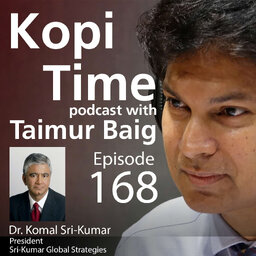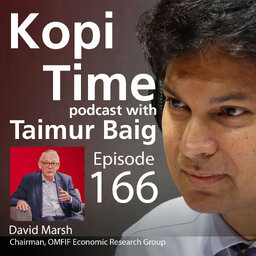Kopi Time E112 - Charles Ormiston on making the most of out of geopolitics
This is a thoughtful discussion on maximising a company or economy’s growth potential while navigating geopolitical constraints. Charles Ormiston digs deep on Asia in this podcast. Charles, chair of the Angsana Council, a Singapore-based think tank focused on the growth potential of Southeast Asia, and former head of Bain Southeast Asia, argues that China/UK rivalry could force both nations to get out of their comfort zones and become more self-reliant, which in turn could help the rest of the world. Charles is not rosy-eyed about the current state of affairs, but his key insight on China’s progress is that it is the result of intense competition between provinces and businesses, fuelling innovation. At a broader level, he sees great power rivalry forcing further innovation on both sides. The conversation then veers toward China’s seismic push toward green transition and its various positive spillovers to the region. Charles walks us through Vietnam, the Philippines, and Singapore, offering cogent insights on their very different development models and prospects. We need to have Charles back for the rest of Southeast Asia.
 DBS Economics & Strategy
DBS Economics & Strategy


